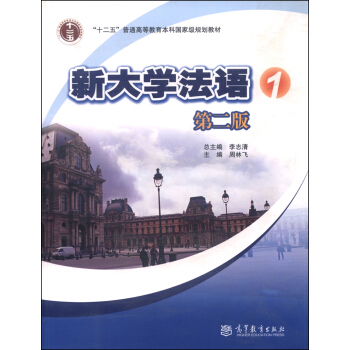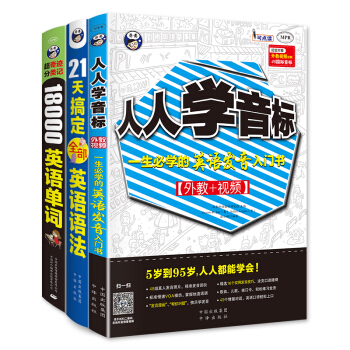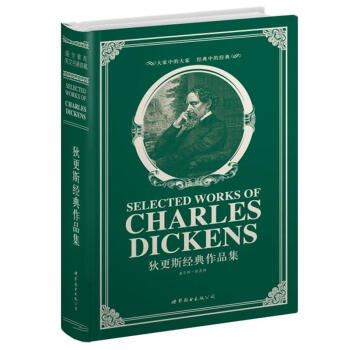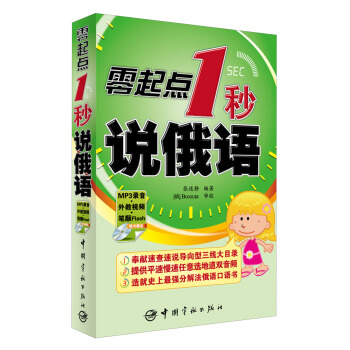![水浒传故事(英文版) [Outlaws of the Marsh]](https://pic.windowsfront.com/10958038/58ce7f5dN9fb7921f.jpg)

具体描述
内容简介
该系列图书精选自中国古代经典小说名著,为方便外国读者理解,专门请有关专家对原著进行缩写改编,内容涵盖原著中有代表性的情节和故事,通过这些可读性强的故事传达出其中蕴含的中国传统文化精髓,吸引国外读者的阅读和探究兴趣,出版后特别受到国外读者喜爱。
《水浒传》是我国明代长篇小说的一部杰作。它不是作者凭空杜撰的,而是以北宋宣和年间宋江率众造反起义的历史事件为素材,并广泛吸收了宋、元间街谈巷议和说书人、杂剧表演依据的“梁山泊故事”。小说描写了水泊梁山一百单八将反抗官军、杀富济贫的故事。本书是针对外国读者的改编故事版。
Outlaws of the Marsh, One of the best known and best loved of the ancient Chinese novels which have come down through the ages, written in the fourteenth century, is a fictional account of twelfth-century events in the final years of Hui Zong, a Song Dynasty emperor who reigned from 1101 to 1125. It tells why and how one hundred some-old men and women are forced by the harsh feudal officialdom and banded together on a marsh-girt mountain, became leaders of an outlaw army of thousands and fought brave and resourceful battles against pompous, heartless tyrants.
内页插图
目录
Contents
Chapter 1
Demons Including Heavenly Spirits and Earthly Fiends are Released
Chapter 2
Sagacious Lu Throws Peach Blossom Village into Confusion
Chapter 3
Lin Chong Goes to Mount Liangshan in the Snowy Night
Chapter 4
Yang Zhi Sells His Sword in the Eastern Capital
Chapter 5
Wu Yong by a Ruse Captures the Birthday Gifts
Chapter 6
Three Ruan Brothers in the Village of Stone Tablet
Chapter 7
Lin Chong Kills Wang Lun
Chapter 8
Song Jiang Slays Poxi in a Fit of Anger
Chapter 9
Wu Song Kills a Tiger on Jingyang Ridge
Chapter 10
Pan Jinlian Carries on a Clandestine Love Affair
Chapter 11
Wu Song Avenges at Lion Bridge Tavern
Chapter 12
Wu Song Beats Jiang the Gate Guard Giant
Chapter 13
General Zhang’s Blood Spatters the Duck and Drake Bower
Chapter 14
Hua Rong Turns Topsy-turvy Clear Winds Fort
Chapter 15
The Thunderbolt Qin Ming
Chapter 16
Song Gongming is Tattooed with the Mark of His Exile to Jiangzhou
Chapter 17
In the Xunyang Pavilion Song Jiang Recites a Rebellious Poem
Chapter 18
Mount Liangshan Gallants Raid the Execution Grounds
Chapter 19
Song Jiang Becomes an Outlaw in Liangshan Marsh
Chapter 20
Li Kui Goes down the Mountain
Chapter 21
Shi Xiu Takes Chivalrous Action
Chapter 22
The First Attack on the Zhu Family Manor
Chapter 23
The Second Attack on the Zhu Family Manor
Chapter 24
The Third Attack on the Zhu Family Manor
Chapter 25
Wu Yong Uses a Plan to Get Zhu Tong
Chapter 26
Song Jiang Meets the Spell in Gaotang Prefecture
Chapter 27
Dai Zong Goes out to Seek Gongsun Sheng
Chapter 28
Gongsun Sheng Performs Magic Arts
Chapter 29
Huyan Zhuo Deploys an Armored Cavalry
Chapter 30
Chao the Heavenly King is Killed
Chapter 31
Guan Sheng Surrenders and Lu Junyi is Saved
Chapter 32
Lu the Magnate Captures Shi Wengong
Chapter 33
Song Jiang Defeats Marshal Gao
Chapter 34
Song Jiang and All of His Men are Amnestied
Chapter 35
Song Jiang is Ordered to Smash the Liao Tartars
Chapter 36
Song Jiang is Sent to Suppress Fang La Rebellion
Chapter 37
Song Jiang Returns Home in Finery but is Poisoned to Death by the Emperor
精彩书摘
CHAPTER 2
Sagacious Lu Throws Peach Blossom Village into Confusion
Shi Jin arrived in Weizhou. Hearing that this is also a border garrison he went in a small tea-house and asked the waiter, “Do you know whether they have an arms instructor from the Eastern Capital, a man called Wang Jin?” While the waiter was talking, a big fellow who looked like an army officer strode in. A full beard framed his round face.The waiter said to Shi Jin: “That’s the major. You can ask him about Wang Jin. He knows all the arms instructors.”
The big fellow said, “The arms instructor Wang Jin you said is with Old General Zhong in the Yanan garrison. And who are you, brother?” “My name is Shi Jin, the fellow they call Nine Dragons? May I be so bold as to ask your name, sir?” Shi Jin queried. “I’m called Lu Da. I’m a major in this garrison.” He took Shi Jin by the hand and said, “Come out and have a few drinks with me.”
The two encountered Li Zhong, nicknamed the Tiger-Fighting General. The three came to a famous tavern. Just as their conversation was at its liveliest, they heard the sound of sobbing in the next room. Lu Da immediately became enraged, shouting, “who are weeping in the next room while we dine.” “The people weeping are a man and his daughter who sing in the taverns,” The waiter replied.
Lu Da said, “Bring them here to me.”
The waiter returned with a girl of about eighteen, followed by a man in his late fifties. Lu Da asked the two why they wept. The girl replied, “My name is Jin Cuilian. Master Zheng, who is called the Lord of the West, saw me and wanted me for a concubine. He sent people to wheedle and threaten, and finally signed a contract promising my father three thousand strings of cash for me. In less than three months his wife, a hard woman, drove me out of the house. What’s more, Master Zheng ordered the innkeeper to demand that we ‘return’ his three thousand strings of cash. We didn’t know what to do. We earn money just by making rounds of the taverns, singing and repay him.”
“Bah,” said Lu Da contemptuously. “So Master Zheng is only Zheng the pig-sticker, the dirty rogue who runs a butcher shop.” Lu Da took out some money and gave it to the father and daughter, saying “Tomorrow you can depart from herel. I’ll return the butcher’s money in person.” Old Jin and his daughter thanked him and departed.
On the morning of the following day, Lu Da came to the door of Zheng’s butcher shop. Looking at Zheng, he shouted, “Butcher Zheng, The garrison commander has ordered me to buy ten catties of lean meat, chopped fine, to be used for filling. There mustn’t be a speck of fat in it. You do it yourself.” After Zheng finished chopping lean meat, Lu Da asked him to cut up ten catties of fat meat.
Zheng wrapped the minced meat in a lotus leaf and placed it in front of Lu Da. Lu Da said, “Now I want ten catties of gristle, chopped fine, also to be used for filling, and I don’t want to see any meat in it.” Zheng laughed awkwardly. “Are you making fun of me?” Lu Da flung the packages of chopped meat full in Zheng’s face. The shower of meat stung the butcher into a rage. He grabbed a paring knife from the butcher’s block and jumped down from the shop steps.
Lu Da sent the butcher sprawling with a swift kick in the groin. Another step forward and he put his foot on Zheng’s chest. He landed three punches on Zheng’s head that brought the blood flowing to the ground. The butcher lay stretched on the ground at his last gasp. Lu Da thought to himself, “Killing him would hold me for trial. I’d better get out of here.” He rose and strode away, shouting, “Go on playing dead. I’ll settle with you later.”
前言/序言
用户评价
我必须强调,这本书的翻译质量,在众多中国古典文学的英译本中,绝对可以名列前茅。它没有落入“为了押韵而牺牲准确性”的陷阱,也没有过度地“学术化”而变得枯燥乏味。它的语言是充满力量的,特别是那些描绘大规模冲突和个人武艺展示的段落,译文充满了动感和爆发力。我特别留意了对一些关键术语的处理,比如“替天行道”的意境,译者没有选择生硬的直译,而是通过上下文的语境,传达出那种反抗体制、匡扶正义的复杂信念,这体现了译者深厚的文化功底。对于一个长期接触西方文学的读者来说,阅读这样的译本,就像是发现了一扇通往东方史诗叙事结构的新窗口。它让我看到了,原来在西方的英雄史诗之外,还存在着这样一套以“兄弟情义”和“江湖法则”为核心价值的叙事体系。阅读的乐趣在于,你可以在现代阅读体验中,感受到浓郁的古典韵味,这种平衡处理得非常成功,值得所有对世界文学感兴趣的人细细品味。
评分从一个纯粹的叙事爱好者的角度来看,这本《水浒传故事》的英文版简直是一部教科书级别的英雄史诗。它描绘的权力结构崩塌后的民间秩序重建,对任何热衷于政治寓言和历史反思的读者来说,都具有极强的吸引力。书中对山寨生活、以及与官府周旋的策略描绘,细致入微,仿佛是一部古代的“游击战术手册”。更令人称道的是,它并没有将梁山好汉脸谱化为简单的“好人”或“坏蛋”。每一个角色都带着沉重的道德包袱,他们的光荣事迹和他们犯下的罪行交织在一起,形成了一张巨大的灰色地带。这种对人性复杂性的深度挖掘,使得故事拥有了超越时代的讨论价值。我特别欣赏那些关于“忠义”界限的探讨,究竟是对朝廷的愚忠,还是对兄弟手足的承诺更重要?译文的风格是磅礴大气的,它很好地承载了原著中那种“大开大合”的气势,让人在阅读过程中始终保持着一种紧张而兴奋的状态。这是一部读完后,会让你思考很久,并且忍不住向朋友强烈推荐的经典之作。
评分我得承认,我对古代侠义小说原本抱持着一种略微审视的态度,总觉得它们在情感表达上会显得过于直白和模式化。然而,这本《Outlaws of the Marsh》的译本,成功地颠覆了我的这种先入为主的印象。它并非仅仅是讲述了一群好汉聚义的故事,它更像是一部关于“被压迫者如何寻求自我救赎”的社会寓言。读这本书的过程,更像是一场心理学的探索之旅。我发现,书中的角色,从高高在上的权贵到草根逆袭的英雄,他们的动机和行为逻辑都异常复杂。比如,某些角色的“逼上梁山”的过程,读起来让人心酸,那种由生活重压和体制不公逼迫出的绝望与愤怒,是如此真实可感。作者对细节的把控极为老辣,即便是对饮酒、赌博、习武这些场景的描写,也充满了文化内涵和仪式感。英文的流畅度非常高,完全没有那种“硬译”的痕迹,它像是一部用现代英语写就的、发生在古代背景下的精彩剧本。我尤其喜欢它在处理女性角色时的笔触,虽然篇幅有限,但像孙二娘那样强悍而悲情的形象,给我留下了极其深刻的印象,展现了那个时代女性在夹缝中求生存的另一种“侠义”。
评分这本《水浒传故事》的英文译本,坦白说,带给我一种穿越时空的震撼感。我一直对中国古典文学有着莫名的向往,但碍于语言的壁垒,很多经典名著只能停留在“听说过”的阶段。这次终于下定决心挑战这部译本,它在保持原著史诗般宏大叙事的同时,语言处理得相当精准,既能传达出宋朝市井江湖的粗犷气息,又不会让现代读者感到阅读上的滞涩。书中的人物群像塑造得极为立体,你仿佛能嗅到那股梁山泊特有的泥土和汗水味。尤其是对于那些性格鲜明、命运多舛的英雄好汉,译者似乎下了苦功去捕捉他们内心深处的挣扎与豪情。比如,武松打虎那一段,文字的张力拿捏得恰到好处,那种蓄势待发、一击必中的力量感,即便是隔着翻译的屏障,也让人热血沸腾。我最欣赏的是,它并没有为了迎合西方读者的阅读习惯而过度“美化”或“简化”故事中的道德困境。那些关于忠义与反抗的复杂纠葛,依然是故事的核心驱动力,让人在享受酣畅淋漓的打斗场面的同时,也能引发对社会公正更深层次的思考。
评分说实话,我最初是抱着“消遣”的目的开始翻阅这本译本的,毕竟阅读一部篇幅如此宏大的古典名著,需要投入大量的时间和精力。但很快,我就被它那近乎野性的叙事节奏所吸引住了。这书的节奏把握得非常有“电影感”,高潮迭起,张弛有度。当我跟随李逵那鲁莽又真诚的步伐时,我仿佛也置身于那硝烟弥漫的战场之上;而当面对宋江的深谋远虑和矛盾挣扎时,我又不得不停下来,思考在特定历史环境下,何为真正的“忠诚”。译者巧妙地运用了一些当代英语的表达方式来诠释古代的伦理概念,使得“义气”和“兄弟情”这些核心概念,在现代读者的语境中依然能够产生强烈的共鸣,而不是沦为遥远的文化概念。整本书读下来,就像经历了一场马拉松式的史诗冒险,酣畅淋漓之余,还带着一丝对过往岁月和命运无常的深深叹息。这是一部绝不适合浅尝辄止的作品,它需要你沉浸其中,去体会那种“人在江湖,身不由己”的苍凉美感。
评分京东快递真好,转天就到了,包装也好
评分翻译的还好吧,只是没了神韵。
评分有点小贵,纸质一般,不过选择不多将就吧!送人的。送货速度不错。
评分值得拥有!!!!非常喜欢!!!
评分有点小贵,纸质一般,不过选择不多将就吧!送人的。送货速度不错。
评分买来准备送朋友的,印刷比较一般。
评分这么薄的一本啊,感觉蛮贵?不过整体来说,找不到英文版的了哈哈哈
评分值得拥有!!!!非常喜欢!!!
评分Yun-Chong Pans retelling of the story, originally crafted by the Ming Dynasty story-teller, Wu Chengen, will captivate children with its fantasy, and delight young and old with its layers of reality and satire grounded in Chinese, Indian, Greek, and Old Testament mythology.
相关图书
本站所有内容均为互联网搜索引擎提供的公开搜索信息,本站不存储任何数据与内容,任何内容与数据均与本站无关,如有需要请联系相关搜索引擎包括但不限于百度,google,bing,sogou 等
© 2026 book.coffeedeals.club All Rights Reserved. 静流书站 版权所有







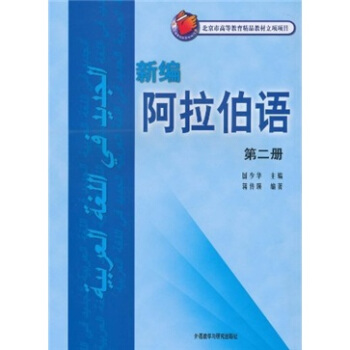



![最经典英语文库:动物农场(英文版) [Animal Farm] pdf epub mobi 电子书 下载](https://pic.windowsfront.com/11409154/rBEQYVMyXTcIAAAAAAUZJtAsWsEAADUVAFEE1AABRk-183.jpg)


![时政用语中译英释例 [Translating Chinese Current Affairs and Government Documents] pdf epub mobi 电子书 下载](https://pic.windowsfront.com/11586862/547fb499N1f50e341.jpg)
